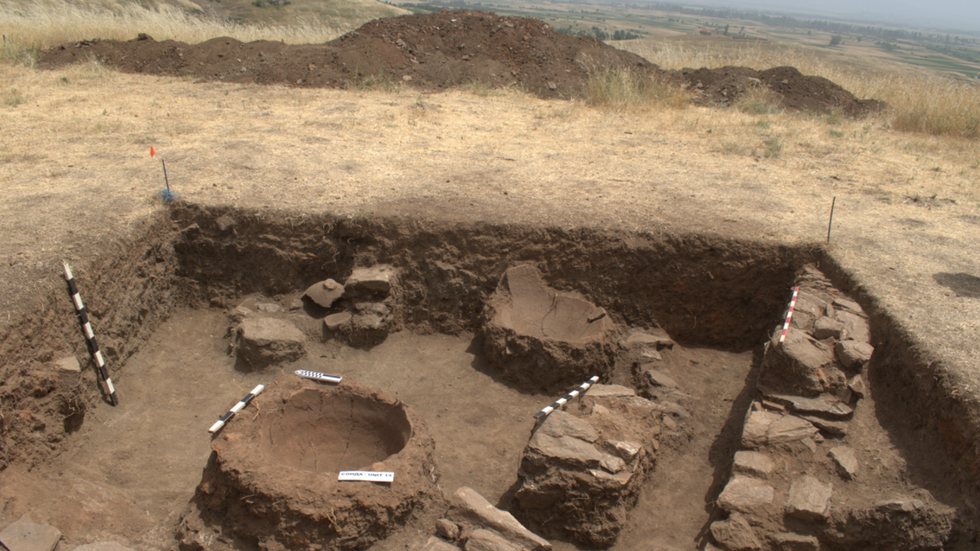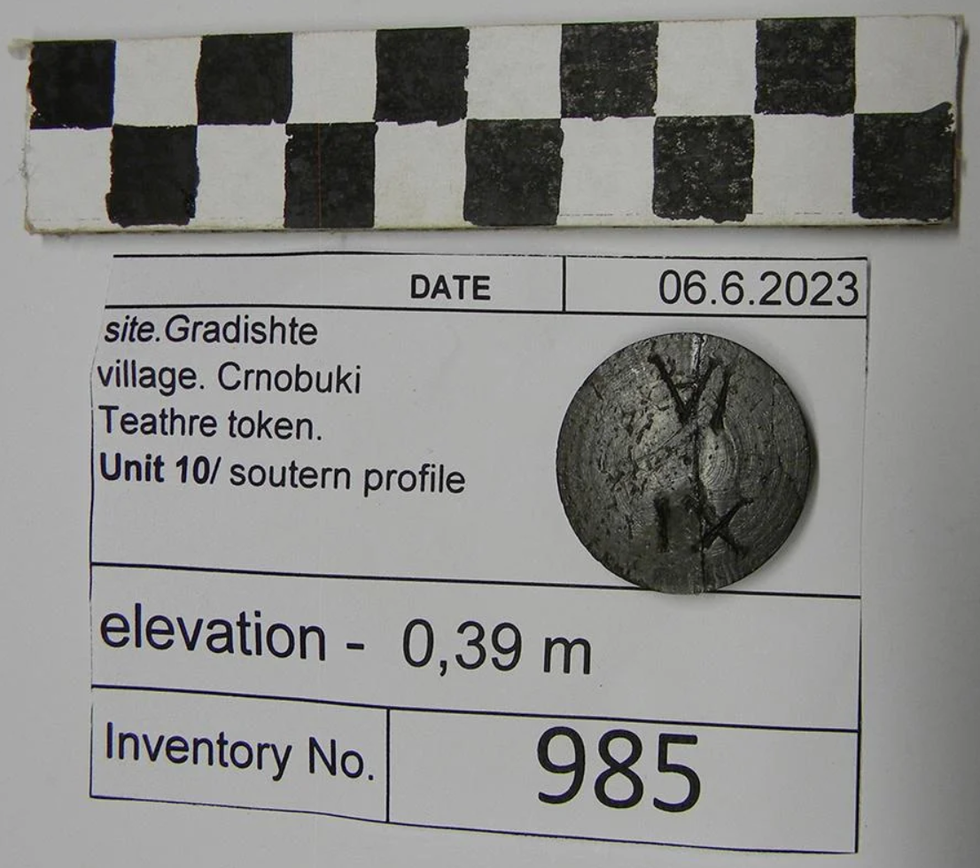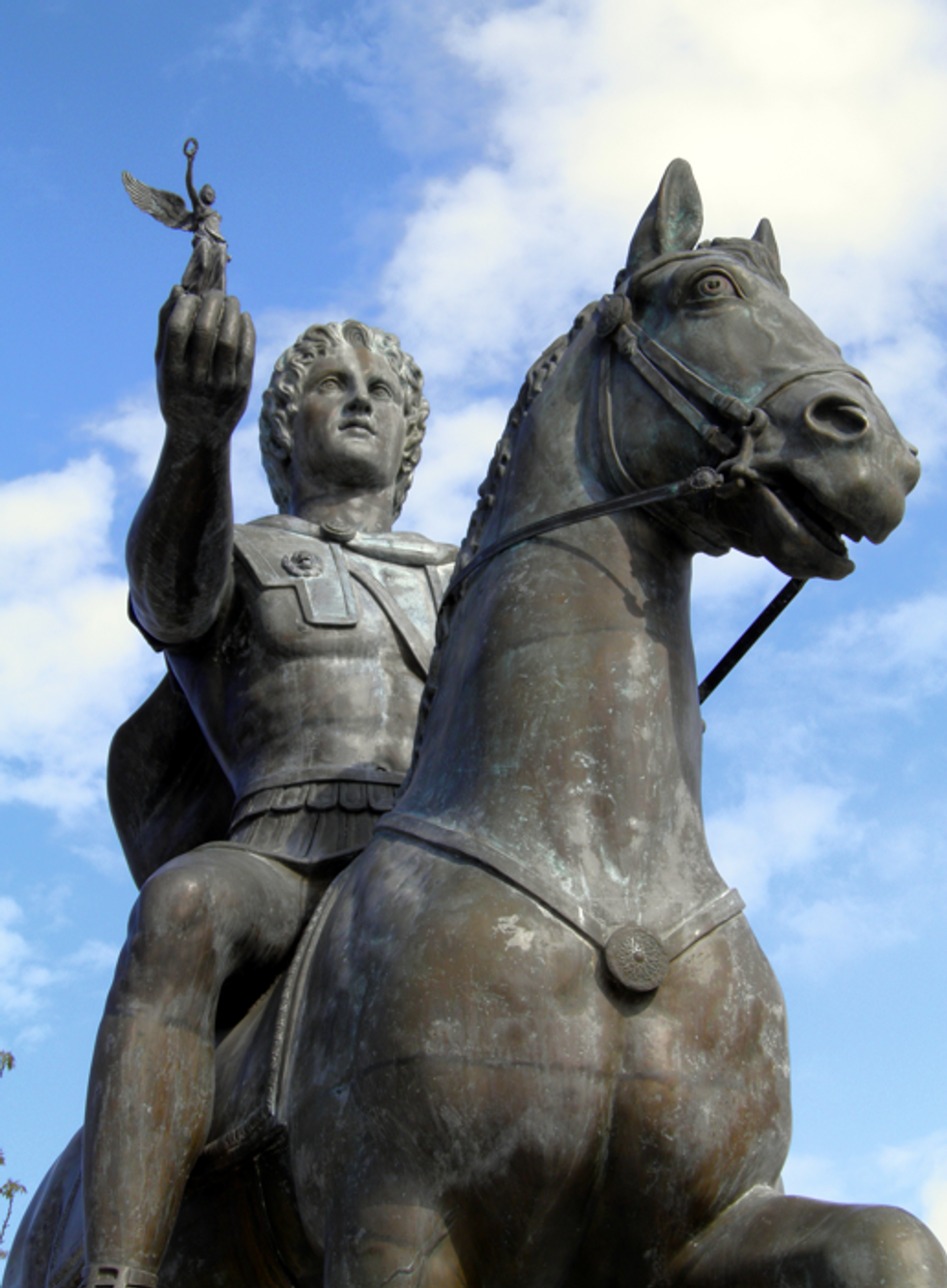Researchers estimate that around 10,000 people lived in the city at its peak
Don't Miss
Most Read
Trending on GB News
Archaeologists believe they have discovered the long-lost capital of an ancient civilisation in North Macedonia.
The remains were uncovered at Gradishte, near the village of Crnobuki, in a joint excavation by California State Polytechnic University, Humboldt, and North Macedonia's Institute and Museum in Bitola.
Experts now think the site is Lyncus, the capital of the Kingdom of Lyncestis, which was conquered by King Philip II of Macedon in 358 BC.
"Every indication is pointing toward this being the city of Lyncus, within Lyncestis," said Nick Angeloff, an anthropology professor with Cal Poly Humboldt.

Archaeologists believe they have discovered the long-lost capital of an ancient civilisation in North Macedonia
California State Polytechnic University, Humboldt
"Nothing is pointing away from it being Lyncus."
The discovery has significant historical importance as Lyncus was the birthplace of Eurydice I of Macedon.
While not widely known herself, Eurydice was the grandmother of Alexander the Great.
"This is the only appropriate location that we have determined may be the ancient city of Lyncus, where Alexander the Great's grandmother was born and raised," Angeloff explained.
"Eurydice I was a very powerful woman in that time in human history," he added.
MORE ARCHAEOLOGY BREAKTHROUGHS:

A theater token found at the site
California State Polytechnic University, Humboldt
"Without Eurydice, we don't have Philip II, Alexander's father, nor do we have Alexander the Great."
The site was initially thought to date from King Philip V's reign but evidence now suggests occupation dating back to the Bronze Age.
Archaeologists used LiDAR technology to see beneath the ground, revealing extensive infrastructure.
"It has become very clear, using technology, that the fortress was designed to hold an entire city," said Angeloff.
The team estimates around 10,000 people lived in the city at its peak.
Excavators discovered numerous artefacts including a coin bearing Alexander the Great's likeness, axes, game pieces and a ceramic with a heart motif.
 The birthplace of Alexander the Great's grandmother could have been uncoveredWikimedia Commons
The birthplace of Alexander the Great's grandmother could have been uncoveredWikimedia CommonsA clay theatre ticket was among the most intriguing finds.
"There has never been a location in North Macedonia with a theatre ticket that has been found that did not have a theatre," Angeloff noted.
Using LiDAR, the team believes they may have located a Macedonian-style theatre.
The archaeological team plans to return to North Macedonia in May and June for further excavations.
Angeloff stressed the historical significance of the project for understanding ancient history.
"The potential for archaeology across North Macedonia to inform our understanding of the classical [eras], as well as the Roman era, is highly significant," he said.
"There's been relatively little work and relatively little investment into this region."
The discovery presents a rare occasion to expand knowledge of important historical periods.
"We have an opportunity here to expand our knowledge of the times of Alexander the Great, [and] the times of the Roman Empire, exponentially."









